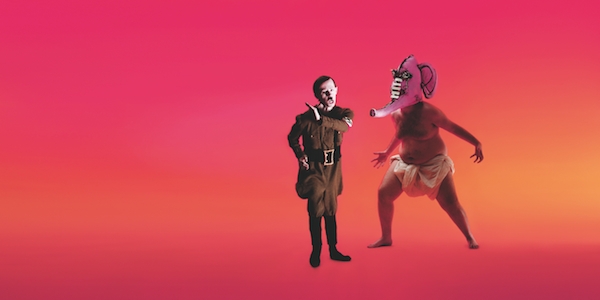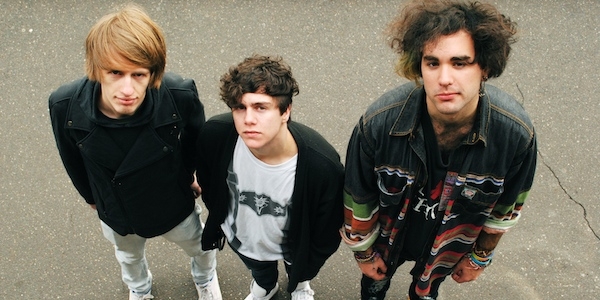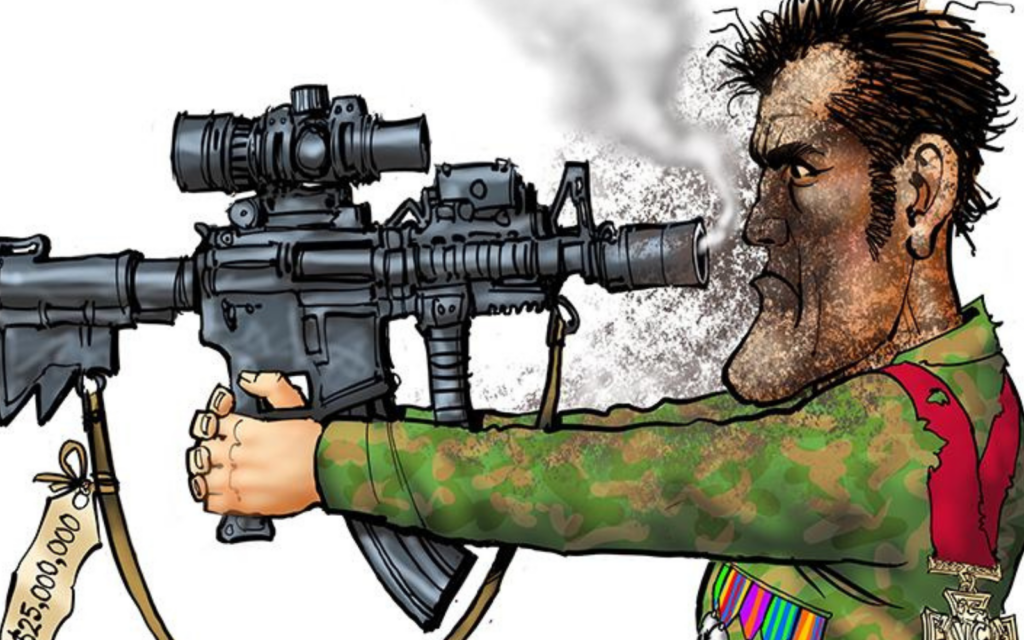So it would be only natural for Ganesh, the elephant headed Hindu God, to be pretty peeved. And as the Remover of Obstacles and the Lord of Beginnings, it’s only natural that he would want the symbol back. And it’s even more natural that a theatre troupe like Back to Back, who are not afraid or stepping in murky moral territory for the sake of art and exploration, would make a play out of the story.
But of course the story isn’t real. And maybe the play isn’t even a play. Perhaps there’s no play and no story, just people on a stage and an audience watching them. Ganesh Versus the Third Reich is such an obscure type of presentation of themes and ideas. It has plays within the play and aims to get the audiences to consider who has the right to tell such types of stories, who has the right to be heard and what stories should be told as the whole truth and nothing but the truth. The play takes on a life of its own and it may even be difficult for some to decipher what is real and what is fictional.
According to David Woods, co-devisor, editor and actor, there have already been instances in rehearsals where technicians have come in mid-scene, seen Woods bullying another actor (as part of the show) and complained about him to the mananger. “When I came back to lunch he wouldn’t let me in,” says Woods laughing about the blurry line between fiction and reality. “But it’s interesting,” he notes, “because that’s what the play’s all about.”
Woods also stresses that the play is not a comedy. Rather it is a “serious tackling of issues with little bits of fun around that.” But with issues as serious as these, there are bound to be expectations, assertions and premature reactions. Already in Australia and even as far as America and India, various Hindu groups are outraged at the possibility of a disrespectful representation of a religious figure.
Woods says they need not worry. “It’s a very respectful and faithful portrait of various Hindu gods and historical figures all to help flesh out the discussion about appropriation in general. I think it’s been trumped up a bit by the media and fundamentalist views and listening to the coverage on the radio, I felt there was quite a misunderstanding about what was going on. I think they were fired up by some misleading press hype, saying it’s a comedy. It has comic elements but it’s not a comedy and Ganesh is certainly not ridiculed. He’s a heroic figure throughout and it’s very respectful and everything’s been thoroughly researched and debated.”
According to director Bruce Gladwin, after the conception of the work in 2008, they realised the narrative was “morally fraught.” It was dangerous, he says, for a “little theatre company from Geelong to appropriate Hindu gods and create a fairytale within the Holocaust.” But he goes on to state that the “reasoning we should not create the work became our rationale for bringing it to life.”
For this reason, Woods claims that is a “brave works.” He is confident that all anxieties will be quelled once the play has finally been staged.
“I think if everybody knew exactly the whole script or the whole play, they would just realise there’s nothing to get angry about. It’s just a very interesting topic and it’s risky because it’s a taboo, sensitive topic but the delicacy with which it’s been tackled will inspire admiration for anyone who sees it.”
Indeed, in 2009, Back to Back theatre was awarded the Kit Denton Fellowship for the work – an award that promotes courage and the championing of challenging and bold ideas.
“I guess that’s where the parallel with the ensemble come in,” says Woods when talking about the brave statements of the piece. The ensemble of Back to Back consists of actors with intellectual disabilities. So when they act out taboo themes, it leaves the audience questioning whether the whole context is appropriate in itself.
“They’re in a marginalised situation,” says Woods about the actors. “They’re excluded from society, so when they’re then put on stage in front of the public, the public misinterprets that and think they’re forced to do that which is what the argument is about – extreme, brutal portraits of society.” The perception is that the actors “have been appropriated like those symbols have been appropriated without due care,” he says.
“The actors are choosing to be in front of you and do these things and the concept of the play is clarifying that.”







